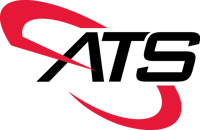An effective time and attendance policy is essential for efficient workforce management. Without a time and attendance policy, attendance issues go unchecked, which can lead to:
- Poor schedule adherence
- Fewer hours worked than scheduled
- Time theft
- Buddy punching
All of which increase labor costs while reducing productivity.
Your team managers, human resources, and payroll staff need the right tools to uphold the policy. Oracle Cloud Time and Labor, with time and attendance tools, helps monitor and control employee attendance based on your rules. It provides accurate data, a real time rules engine, and analysis for tracking and optimizing policy adherence.
Evaluating Employee Time and Attendance Requires Accurate Data
Any strategy for evaluating employee attendance relies on accurate data. Using a time clock system, like ATS's TimeCom that seamlessly integrates with Oracle Time and Labor automates the collection of accurate time data.
Time card entries and manual timekeeping systems are unreliable for collecting time. This creates difficulties for managers and HR in enforcing attendance policies.
Combining the time clock system with Oracle Time and Labor allows for easy gathering and organizing of accurate attendance records. With such a solution you not only automate the collection of accurate time and attendance data, but also its delivery to key back-office systems like payroll and scheduling.
Time and Attendance Analysis to Improve Outcomes
Integrating Oracle and a reliable time clock system helps managers and HR compare employees' schedules with their actual work hours. This is a powerful combination of data that enables them to identify and prioritize the employees who need attendance coaching or rewarding.
Coaching Better Performance
Coaching to improve employee performance is a large part of the manager’s work. Coaching employees to improve their attendance record is part of that. Coaching informs employees that their absences could be a problem. However, the primary goal is to help them find a solution.
Typical coaching levels are:
- Level One– A verbal warning and discussion. The employee may have a valid reason and could be excused.
- Level Two – A written warning that documents attendance goals that are mutually agreed upon.
- Level Three – Management discusses with the employee whether the job is a good fit. This discussion may end in termination.
Analyzing an employee's attendance data by using Oracle Time and Labor with TimeCom can reveal frequent absences or lateness are caused by personal, systemic, or other reasons. Understanding these nuances sharpens coaching interventions, enabling tailored strategies for better attendance and performance.
Offer Rewards
You can also use your time and attendance policy to show appreciation. Positive reinforcement for those who meet their employee schedules can improve productivity and employee engagement.
Management can reward employees who meet or exceed attendance expectations. They can use trend reports to also reward employees who’ve shown the most improvement. Reward employees with paid time off, a payroll bonus, or simple recognition on the company bulletin board.
Sick and Vacation Time Off Requests
The sick leave policy should allow a reasonable number of unscheduled absences. Employees appreciate knowing that they’re not jeopardizing their job due to a medical emergency. They’ll also feel less pressure to come to work sick.
Many companies require employees to submit planned time off requests a certain number of days in advance. You can avoid cumbersome, long lead times by automating the time off request process.
If you use Accu-Time Systems’ integration of TimeCom with Oracle Cloud Time and Labor, employees can request time off at the time clock. Automating this process speeds up response time, which improves employee scheduling.
Be Consistent – Not Strict
Your attendance policies should be reasonable, and managers must apply them consistently.
When you develop your time and attendance policies, consider what benefits employees and your company. When you set your program, share it and abide by it. When you work for everyone's benefit, your company will grow, and your workforce will improve.
Transparency and adherence to these policies are essential. Using Oracle and an integrated time clock system ensures fair and consistent oversight of the time and attendance policy.
With its rule-based time recording, TimeCom facilitates accurate data collection, enabling equitable policy enforcement across all levels. This seamless integration guarantees a fair playing field for all employees, fostering a culture of trust and reliability.
Get in touch with our solution consultant today to learn more about how the right software solutions can help improve your employee attendance and productivity.


